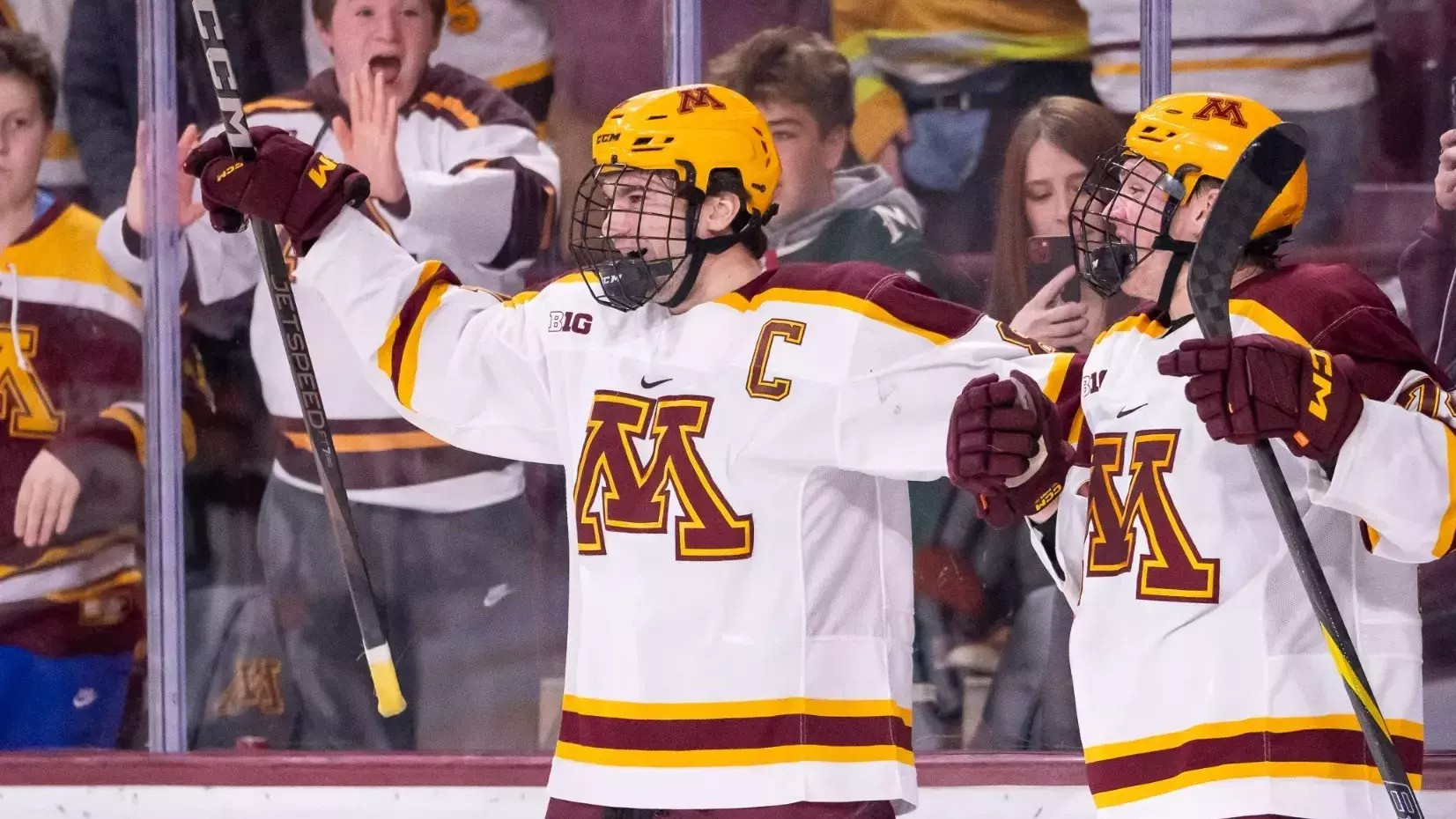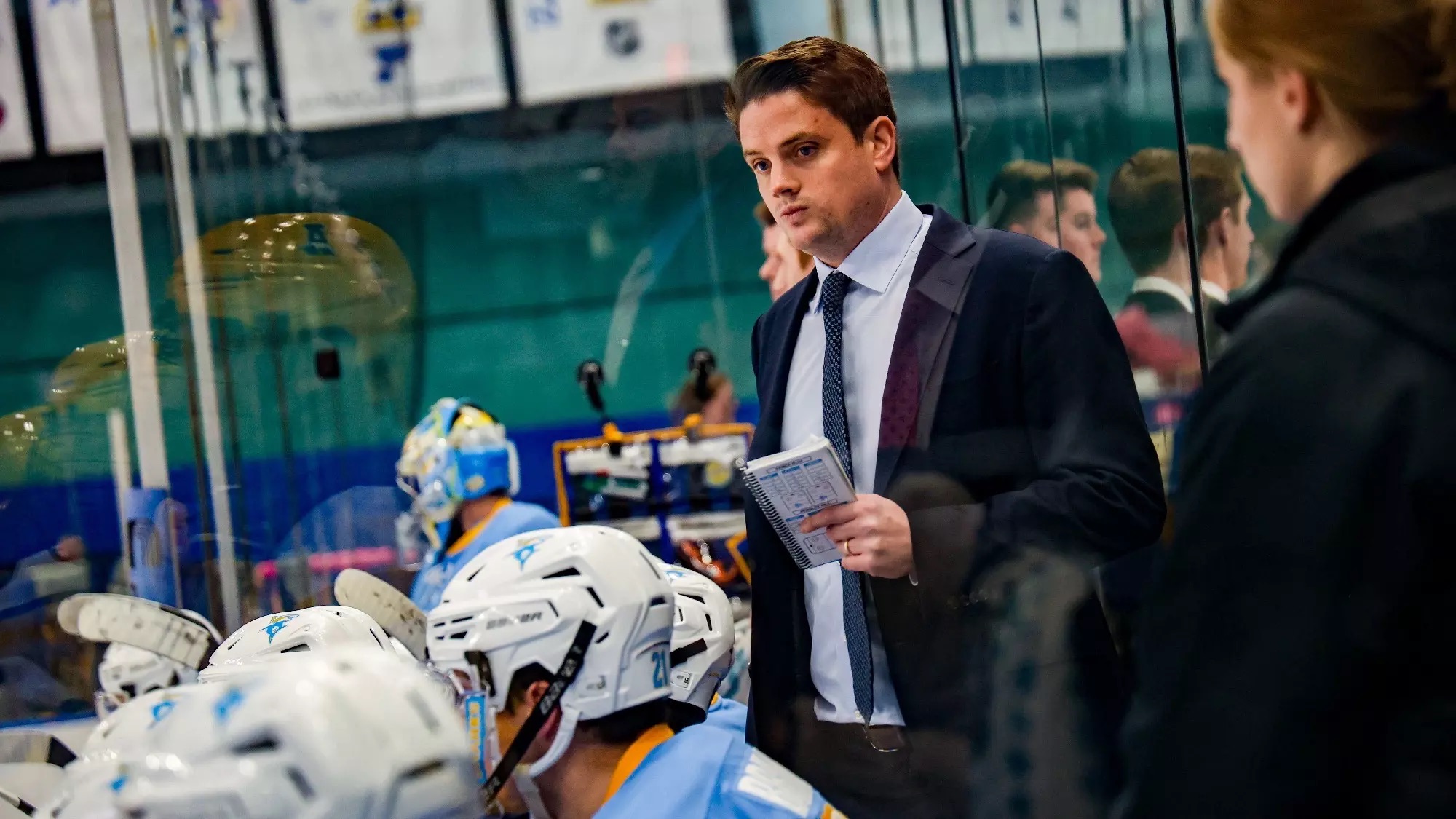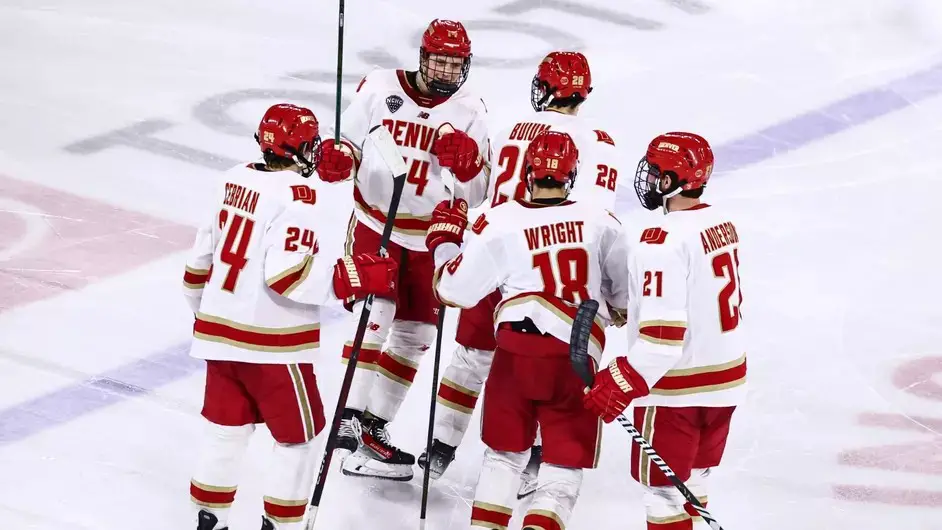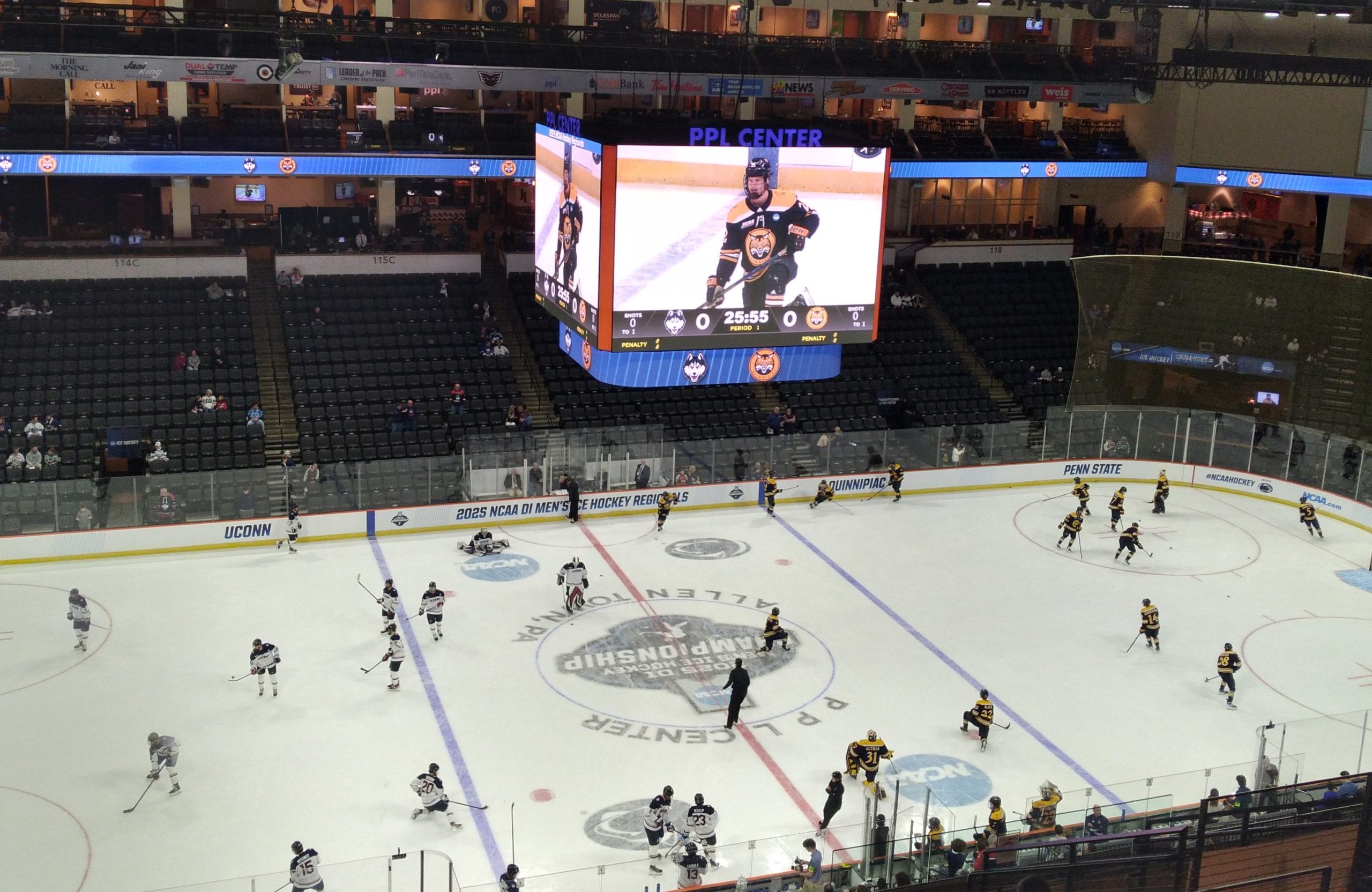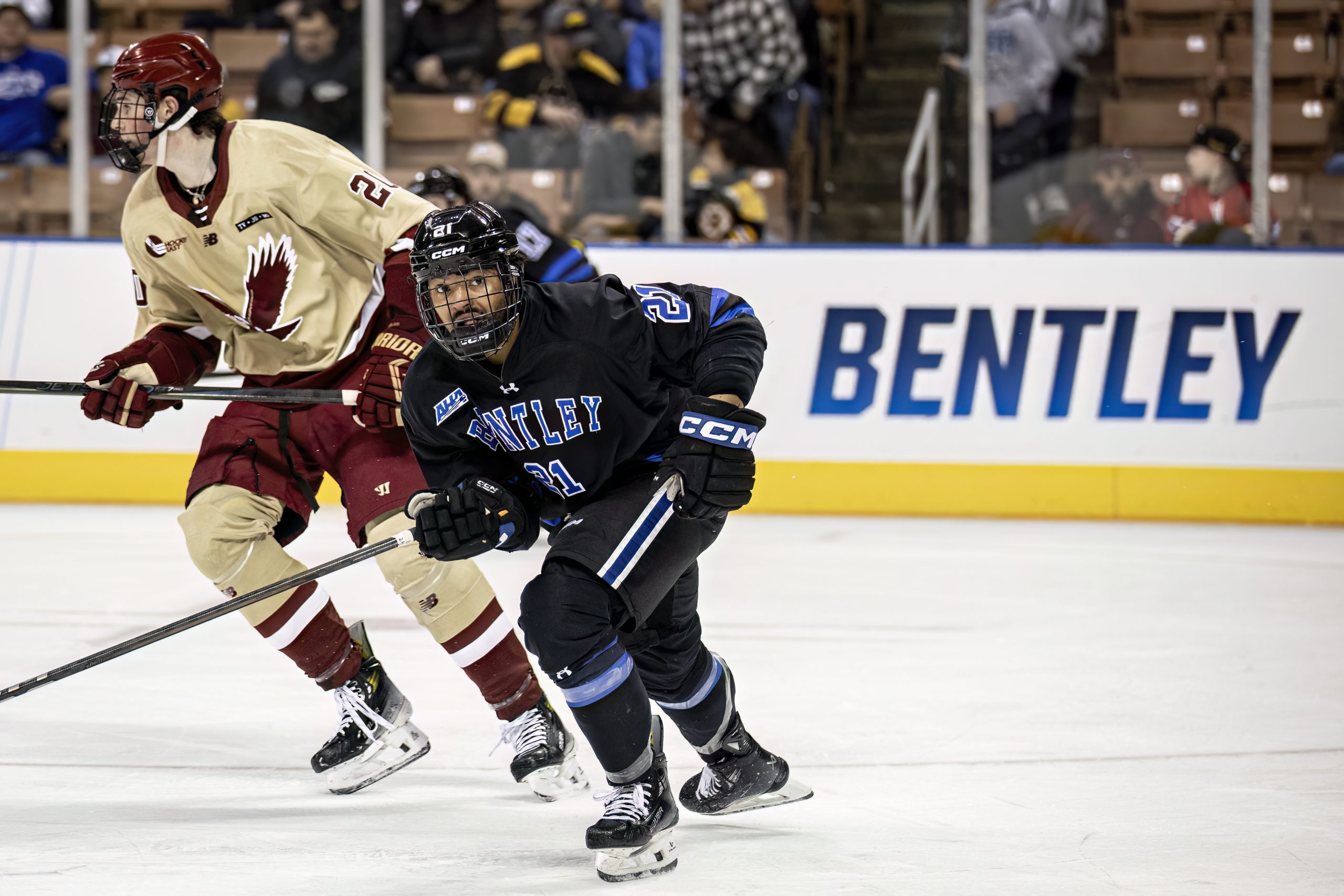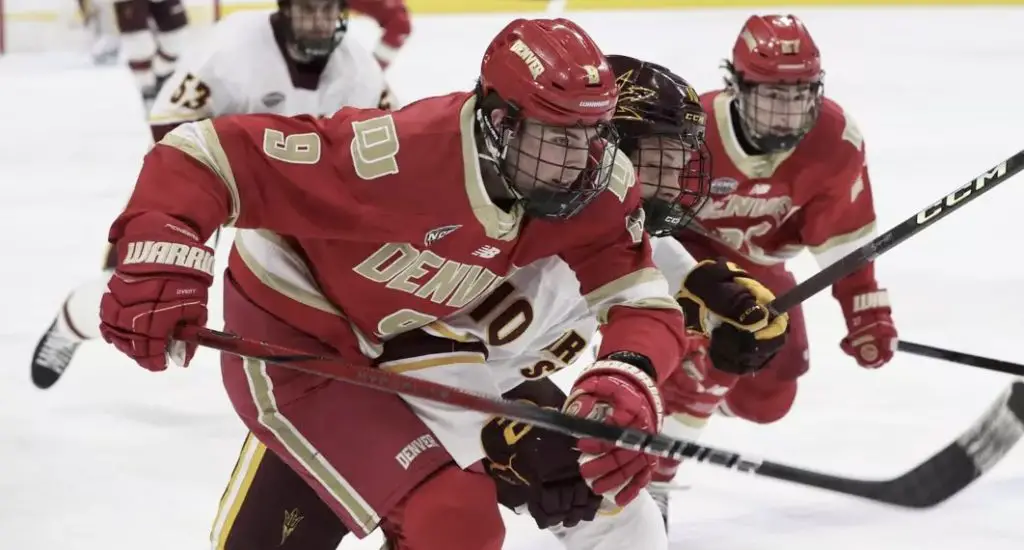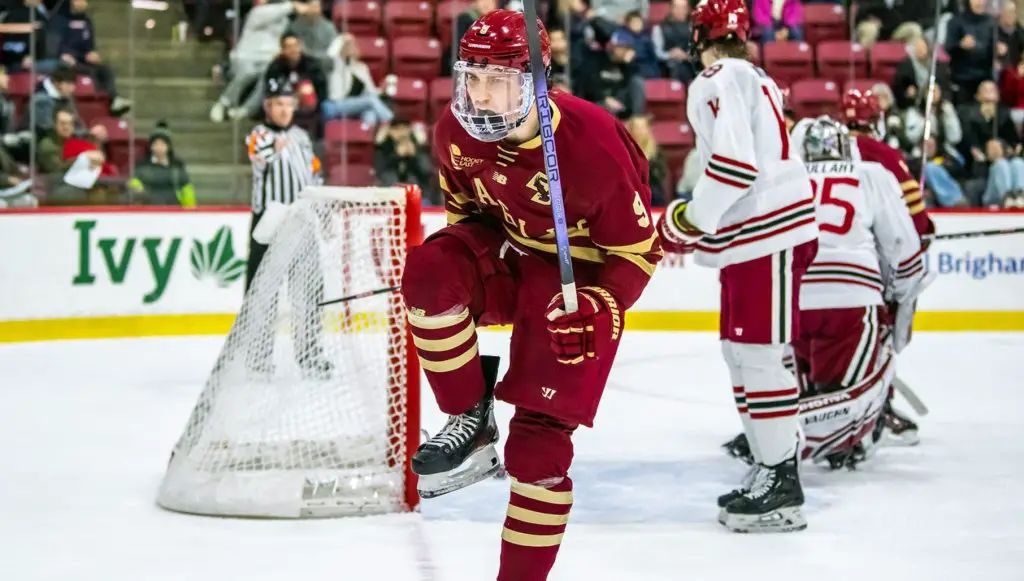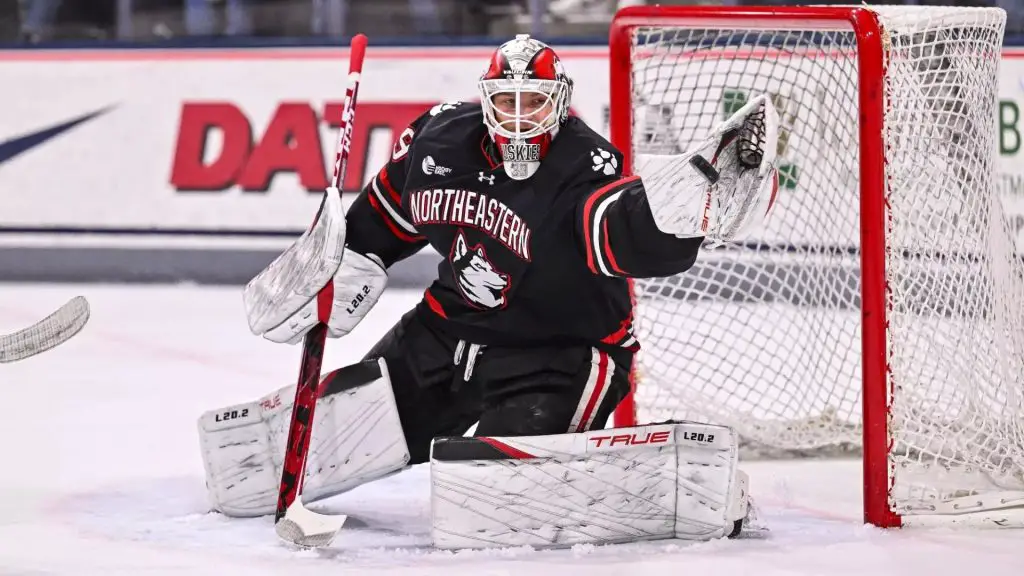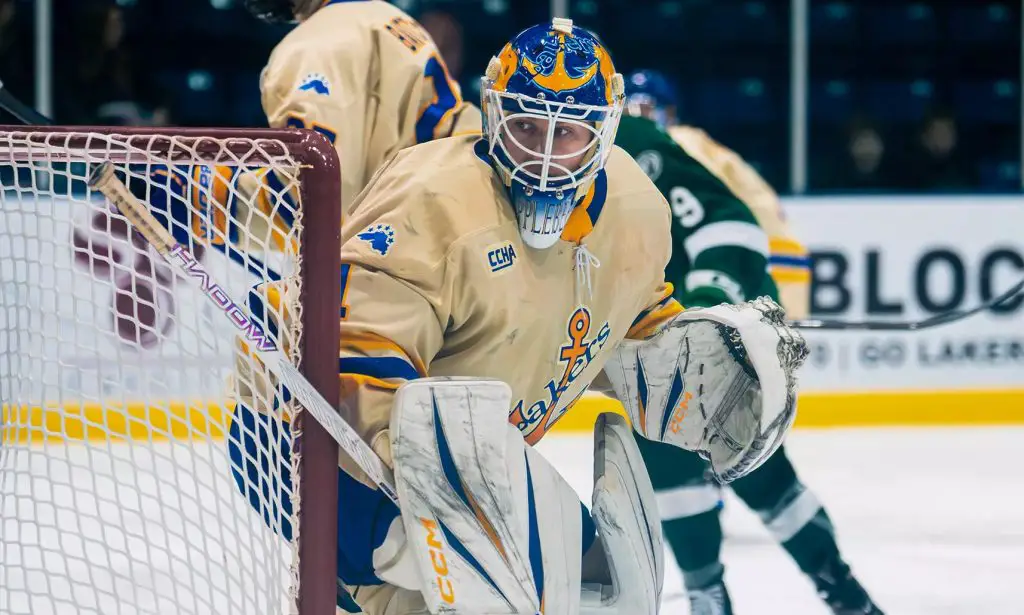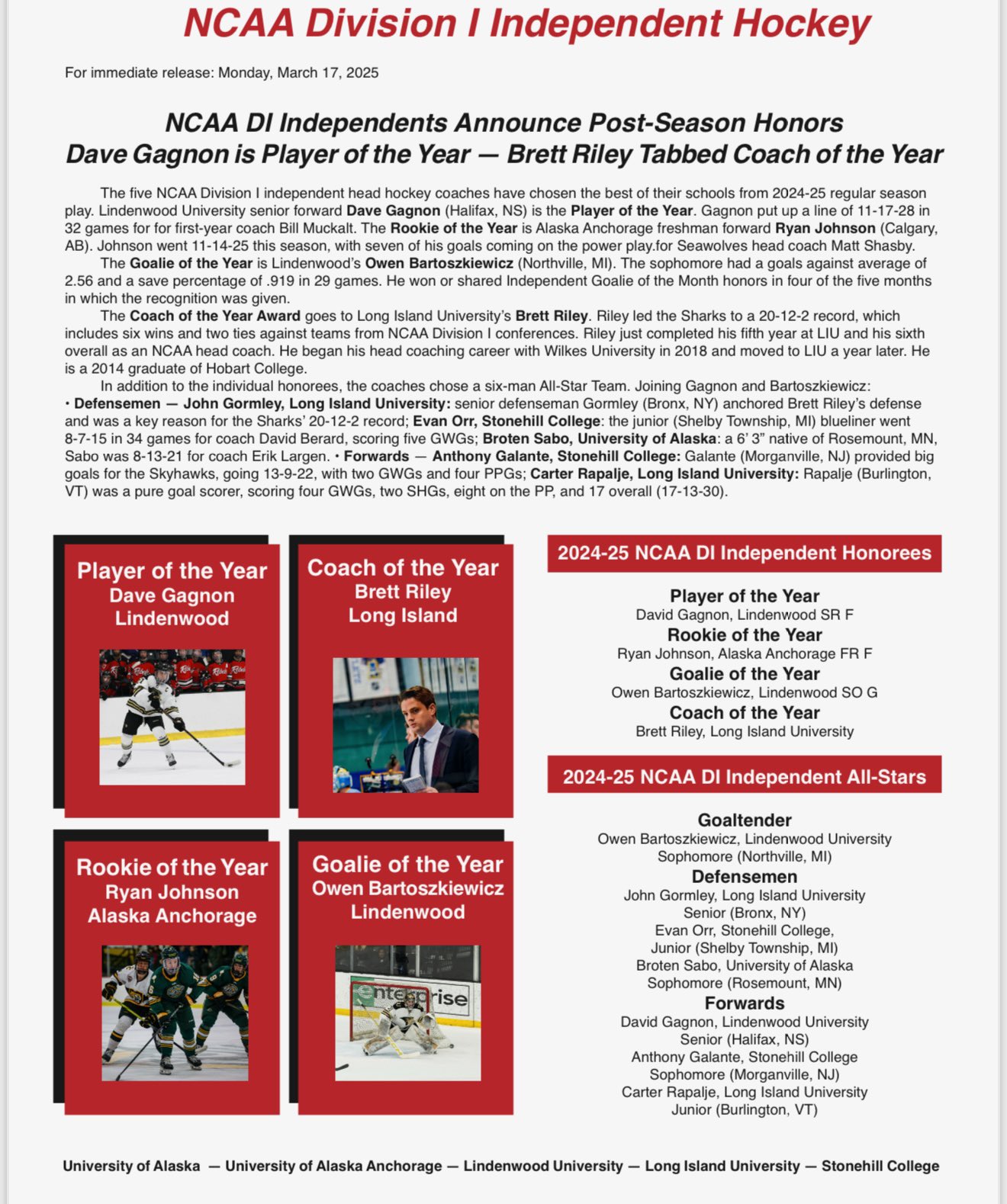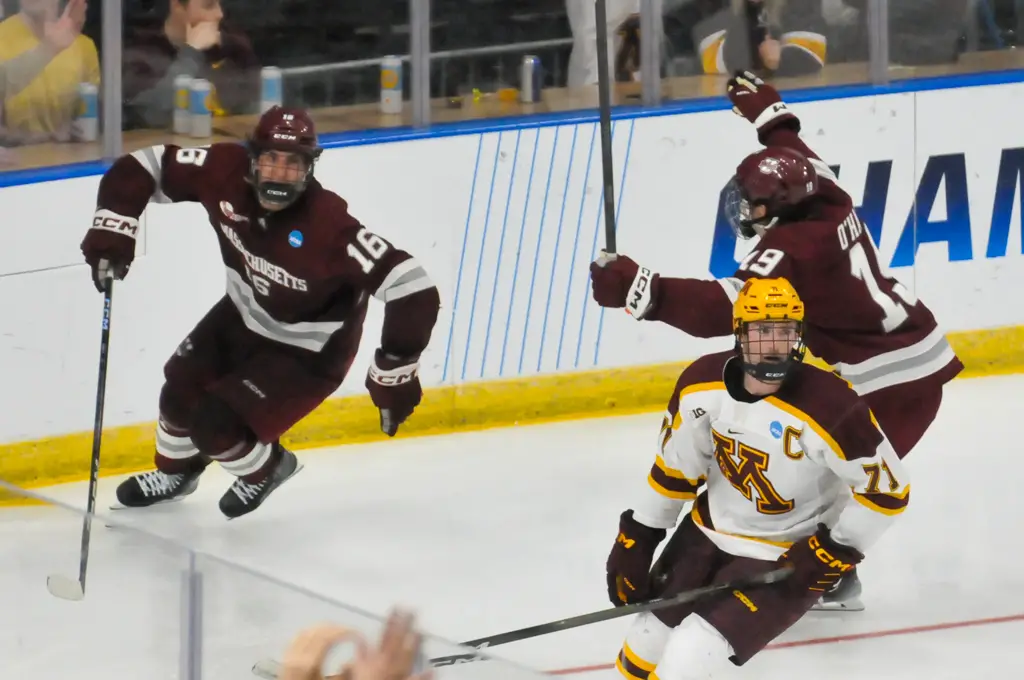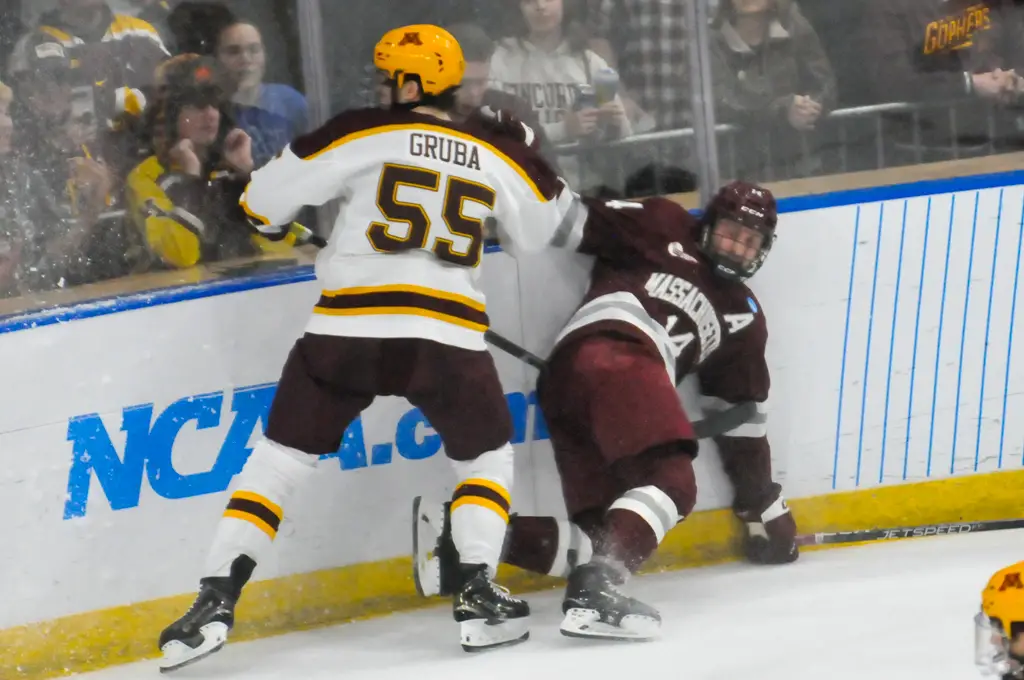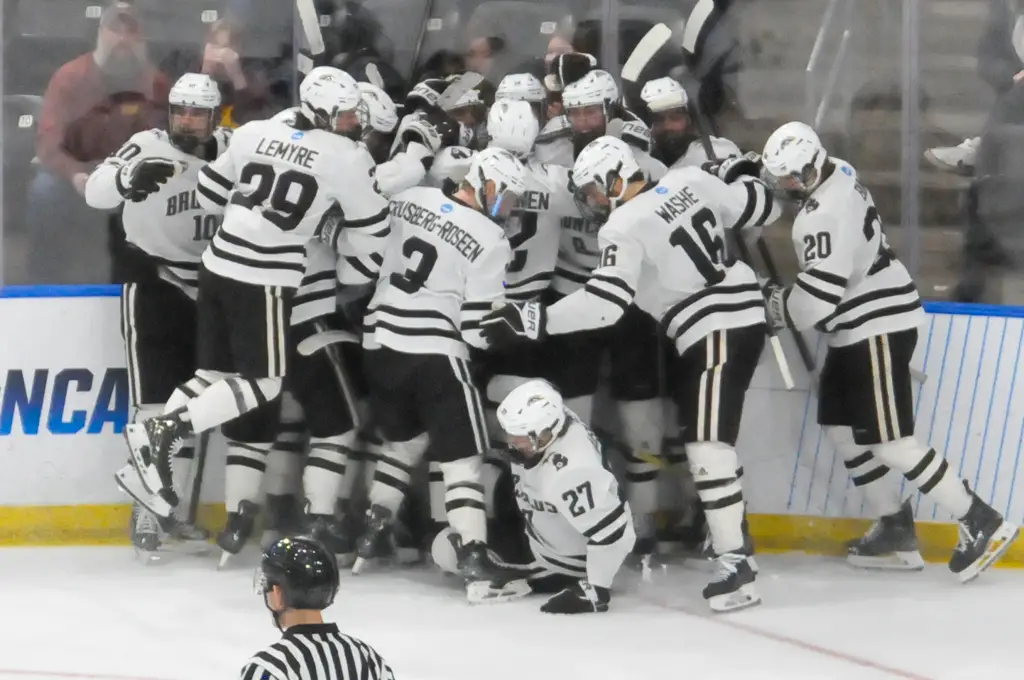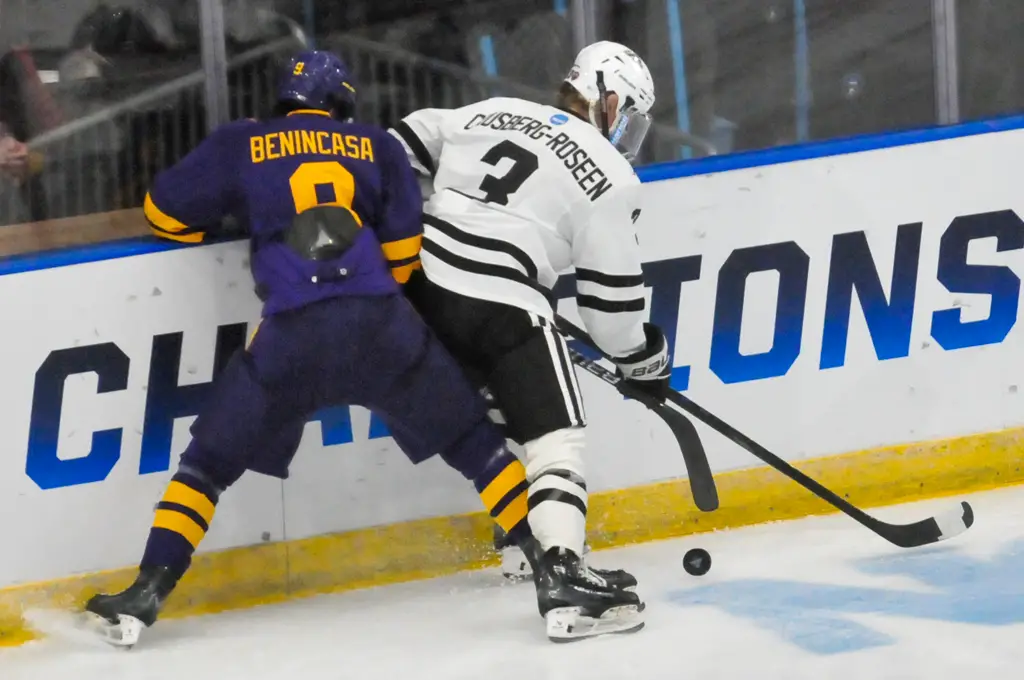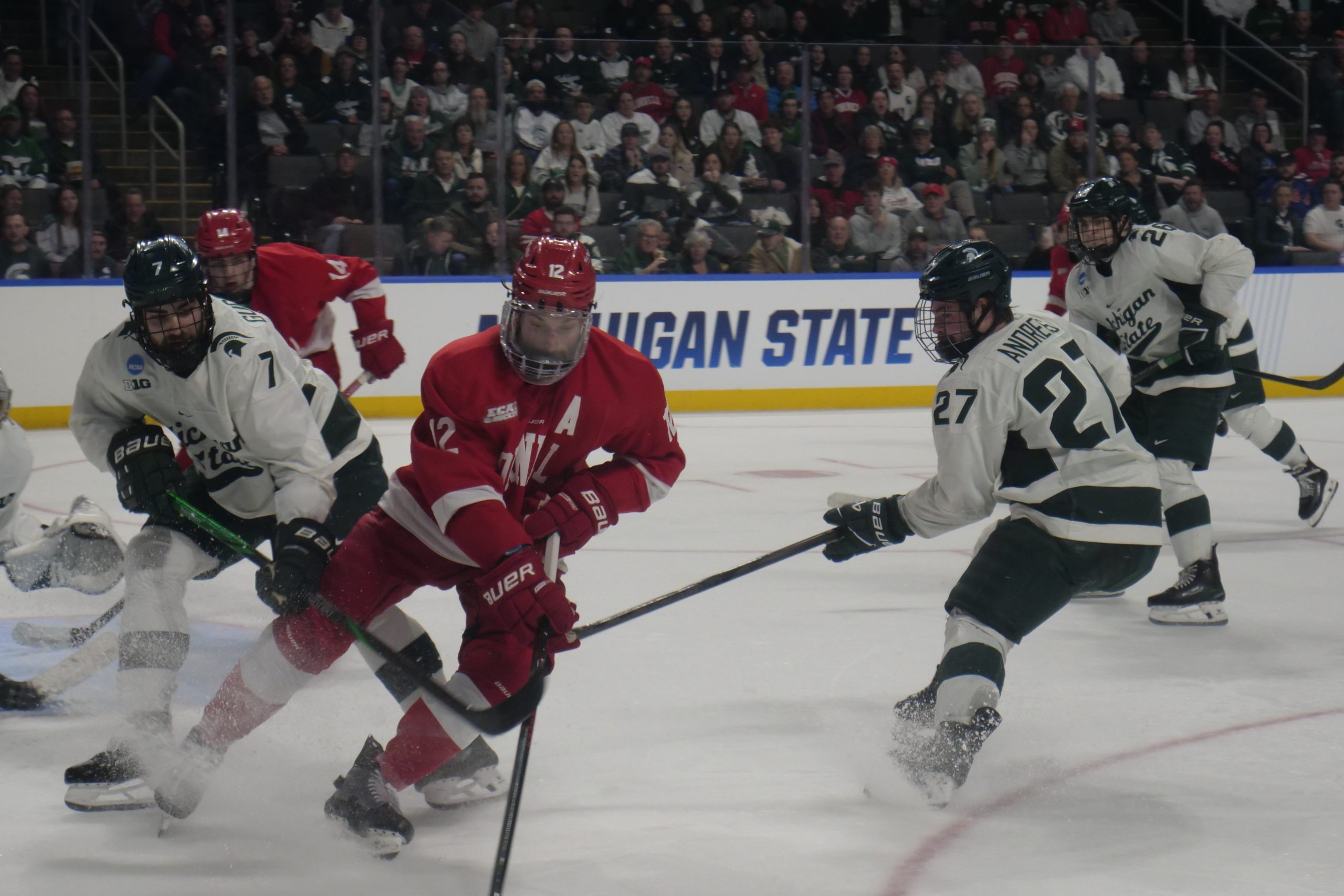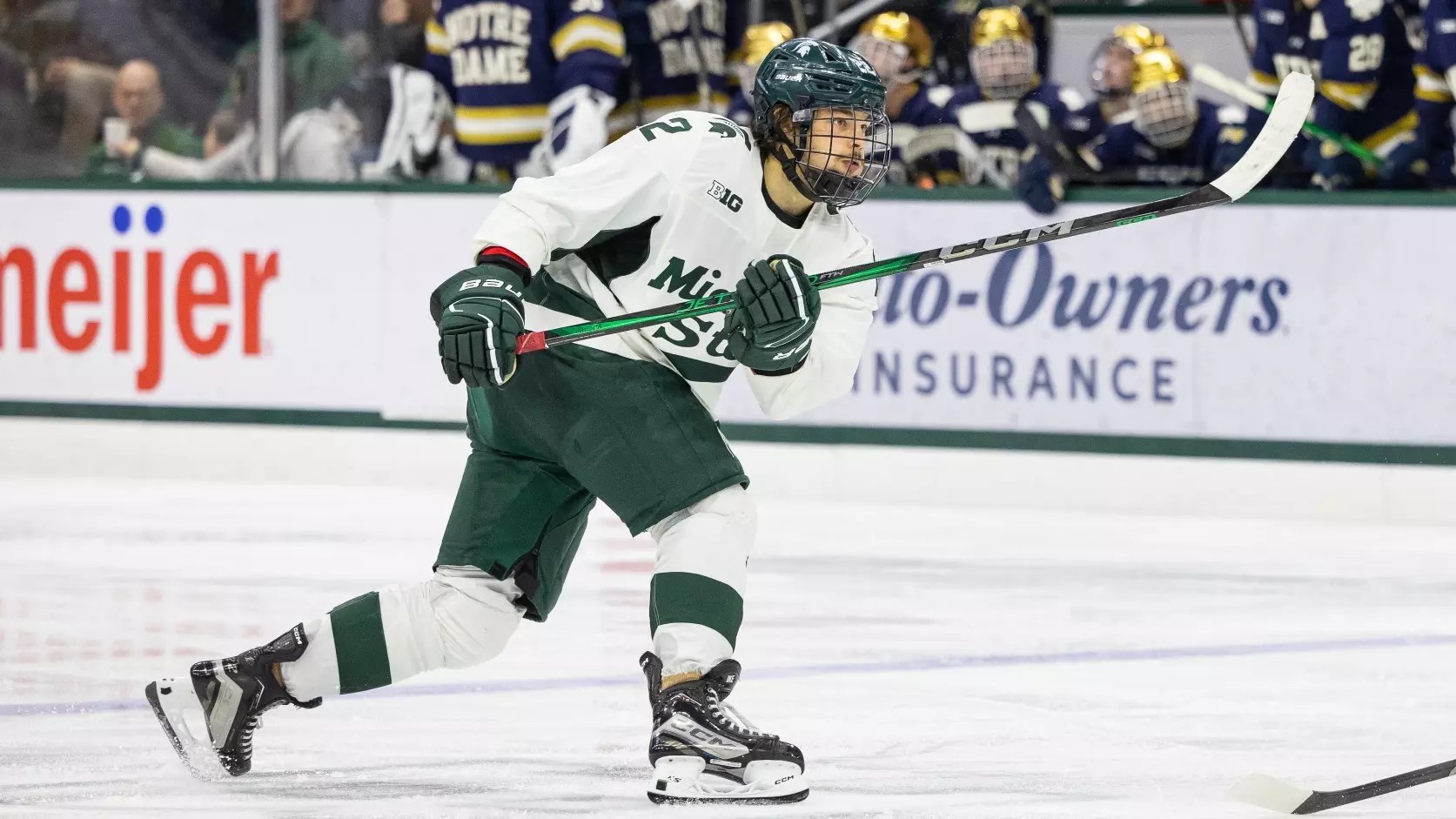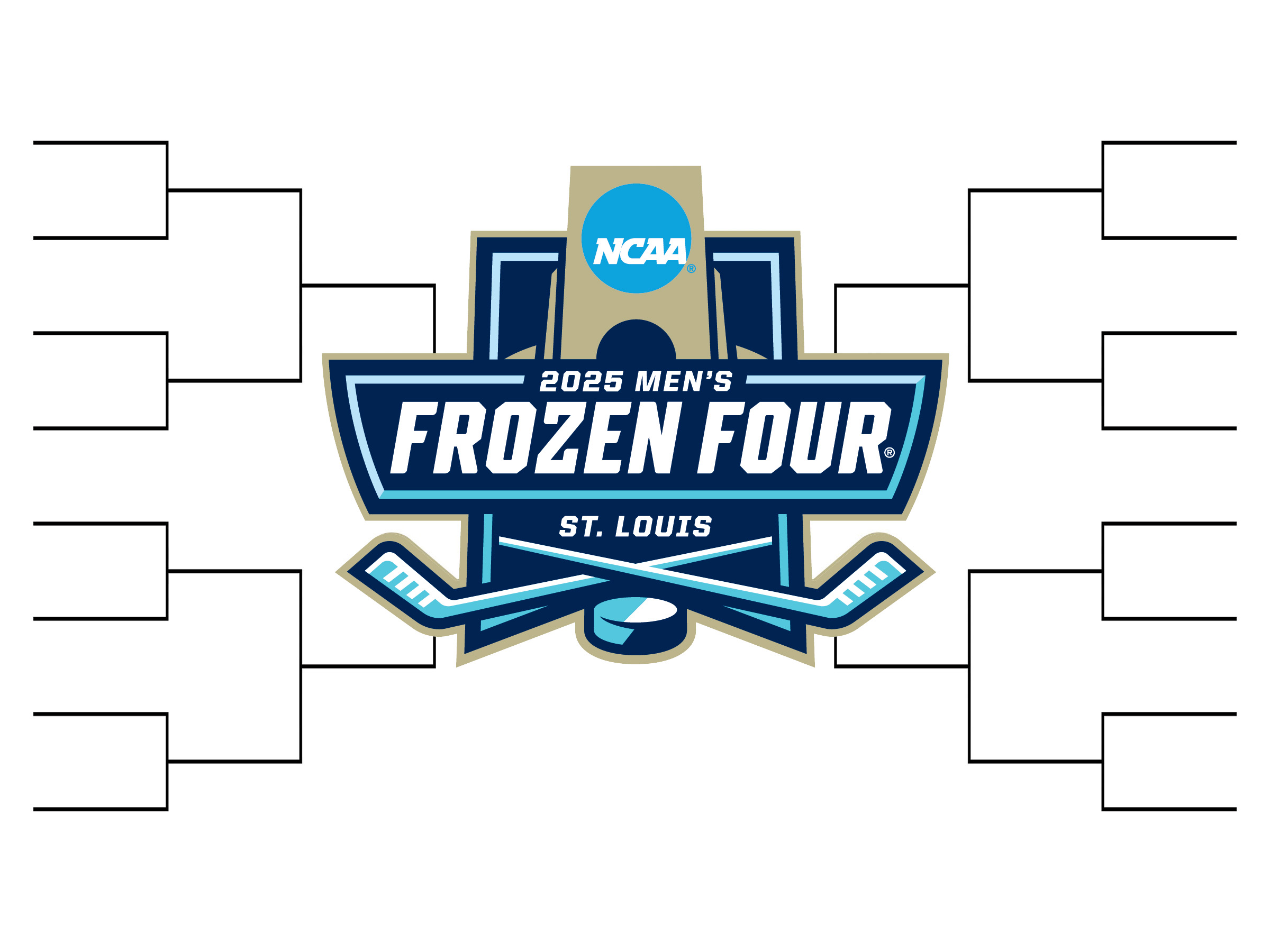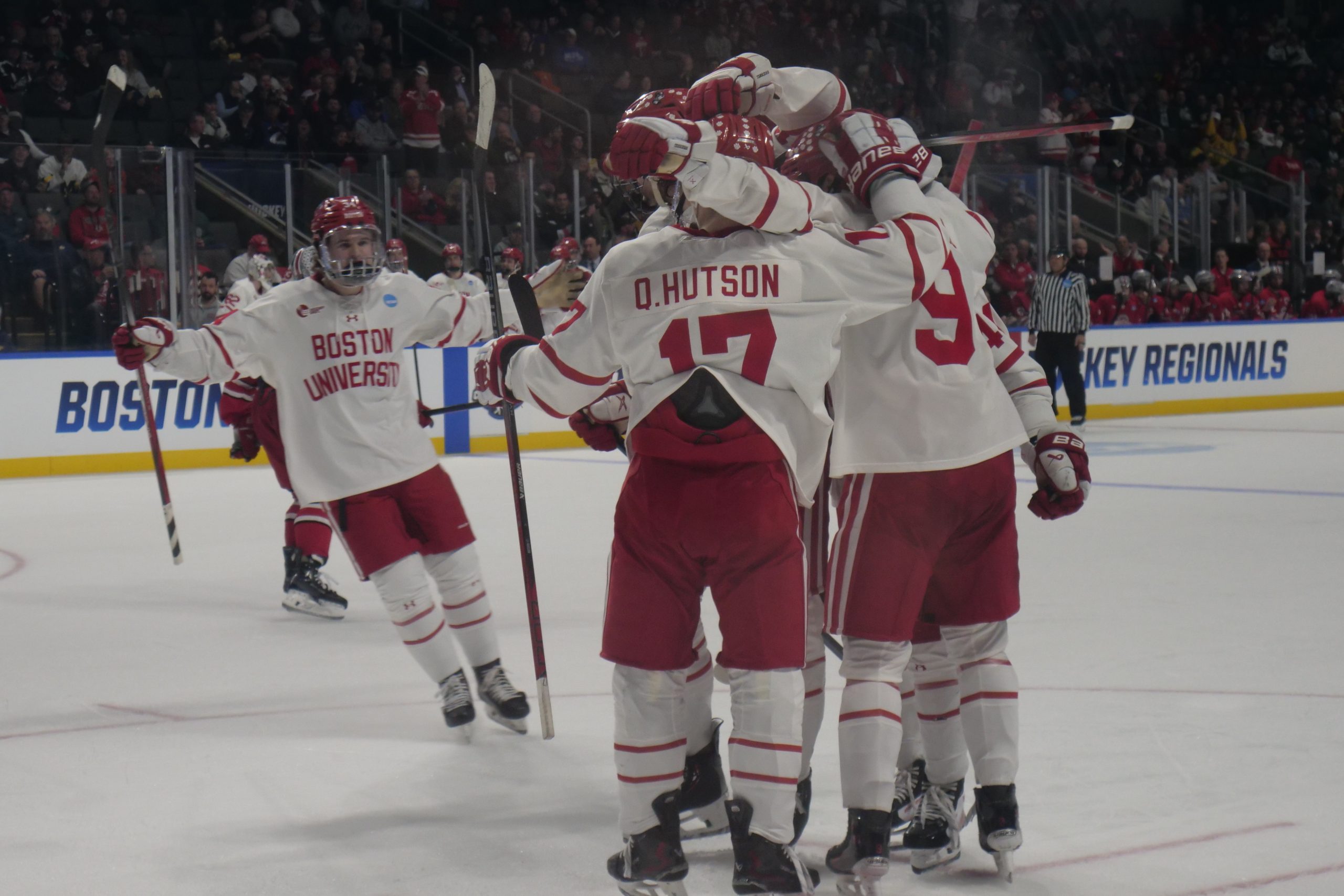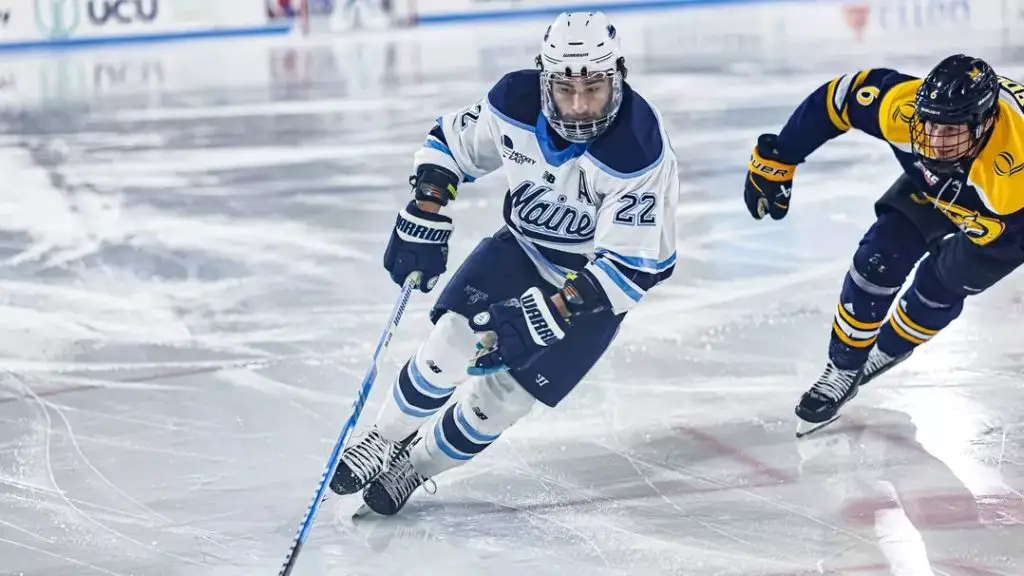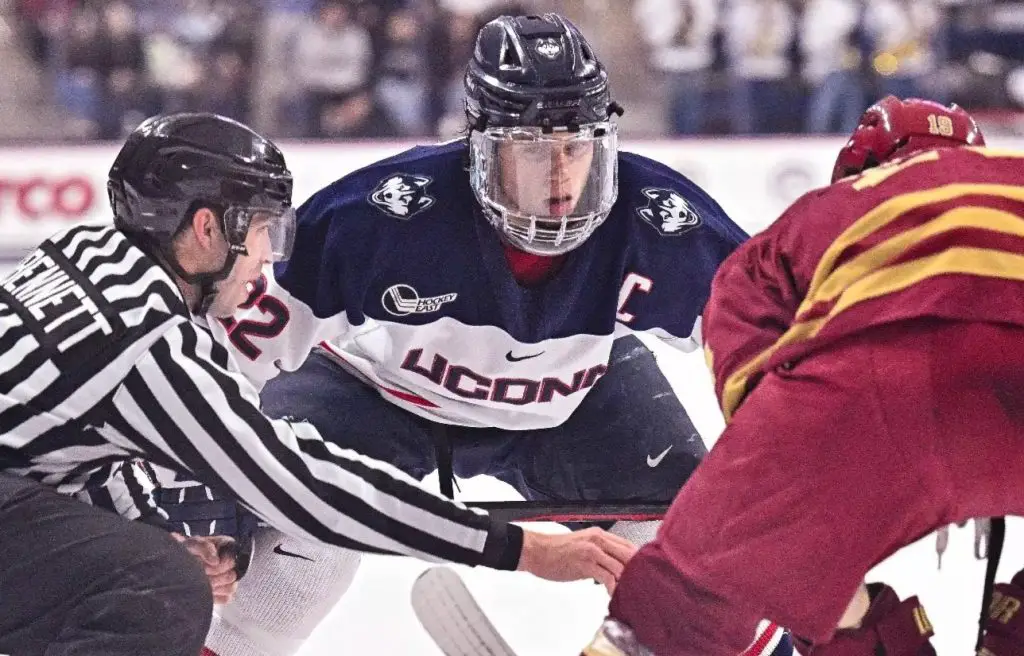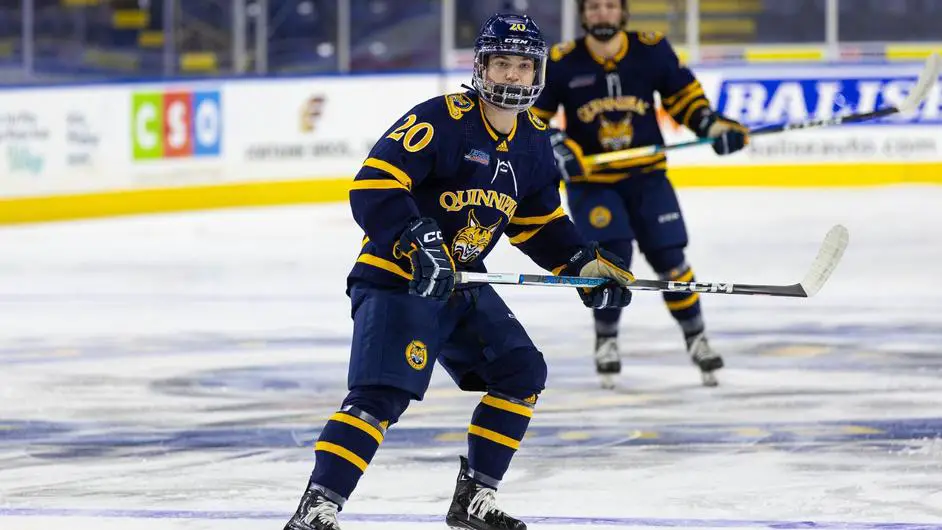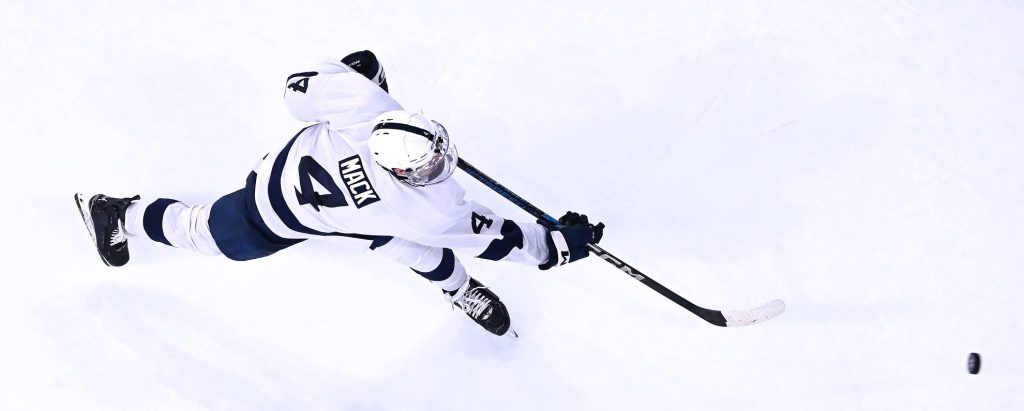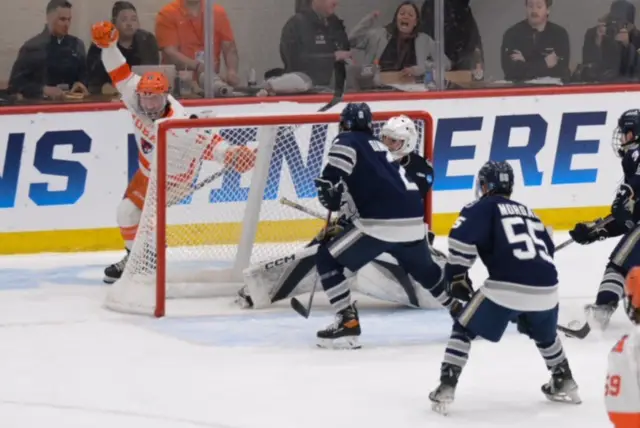
UTICA, N.Y. — Hobart’s Matthew Iasenza may not play pool, but his banked shot off the back of the opposing goalie proved to be the game winner at 10:36 of the third period as the Statesmen defeated Geneseo, 2-1, in the NCAA Division III semifinal game.
Iasenza went deep on the right side, all the way to the goal line, before flipping it towards the net. Adam Harris left a sliver of an opening, and the puck bounced off his numbers and into the net.
“No, I don’t,” Iasenza laughed when asked if he plays pool. “I knew my line mates were going for a change and just wanted to bring the guy wide and bring it to the net. It ended up working out.”
On the opposite side, Harris described the goal, “It was one of those plays you’ve done a million times in your life. I just slipped a little bit and gave a little bit of a hole and the puck found it.”
The game opened up strong for Hobart, which brought a relentless forecheck that had Geneseo back on its heels most of the first period. Hobart had numerous scoring opportunities — a point blank shot from the slot which sailed over the net, cutting across the net but having the puck roll off the stick, a shot going behind the goalie but dribbled along the goal line — but couldn’t light the lamp.
Despite getting outshot 17-4 in the first, Harris was the key reason the game remained scoreless.
“If it wasn’t for Adam, it could have been much different after one,” Geneseo coach Chris Schultz said. “Just an incredible student-athlete. 3.98 GPA. It doesn’t surprise me one bit he was the best player on the ice.”
Hobart finally broke through at 5:39 of the second period. Calum Chau’s shot from the top of the left circle sailed in through a crowd. It was the speed of the shot which seemed to fool Harris.
Chau said, “It was a bit of a knuckle puck. As long as it gets on net, right?”
Hobart thought they made it 2-0 less than two minutes later. Easton Ryan knocked his own rebound in with his leg as he was falling in front of the net. However, the refs immediately ruled it was a kicking motion which allowed it to go in.
Hobart coach Mark Taylor challenged the play, but the official review upheld the on-ice decision.
A breakaway by Hobart late in the period never got anywhere because the puck rolled off the stick.
“Hobart came out extremely strong,” Schultz said. “I think we gave them a little bit too much respect early in the game. Got better as the game went along. Third period I was happy with. Had some chances in the third.”
One of those chances tied the game at 2:16 of the final stanza. Captain Peter Morgan stole the puck at Hobart’s point, raced down the right boards, and upon entering the zone, fired a shot up high, opposite corner over Damon Beaver’s glove.
Eight minutes later came the billiard shot by Iasenza.
Geneseo pulled their goalie with about two minutes left, but were unable to sustain any strong pressure.
Taylor said, “I knew we were going to have to earn it from the start all the way through 60 minutes. We stayed with our game plan the whole way, and it worked out. I thought we had to earn our goals.”
Chau added, “As long as we play solid defensively, we don’t need to score too many, and we have the best goalie in the league.”
Geneseo’s season ends at 24-5-1. Harris finished with 38 saves.
Beaver stopped 20 shots enabling Hobart (28-1-1) to move on in their quest for a three-peat, facing the winner of the Utica vs Curry nightcap. The championship game is Sunday at 7:00 pm.
